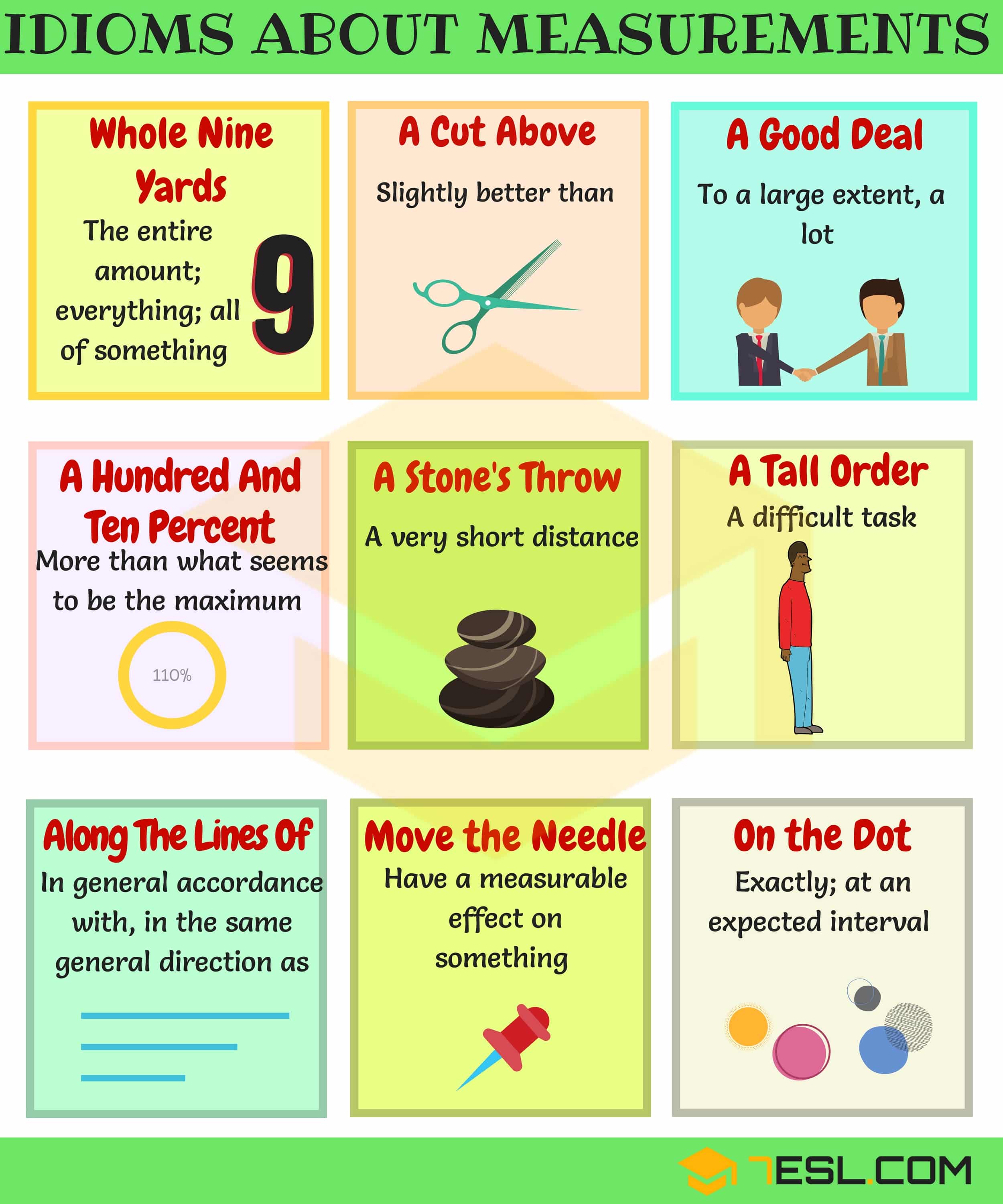What Is An Example Of An Idiom - An idiom is a phrase or a group of words whose meaning isn't always clear from the literal definition. Instead, the phrase's meaning is often figurative and culturally specific. Understanding idioms is important for people who want to be fluent in a language. Whether you are learning English as a second language or you want to improve your understanding of native English speakers, it is important to know some of the most common idioms!
General Idioms | List of Idioms with Meaning and Examples
Here are some general idioms with their meanings:

- Break a leg: means good luck
- Bite the bullet: means to face a difficult situation or decision
- Costs an arm and a leg: means very expensive
- Beat around the bush: means to avoid answering a question or to speak indirectly
- Kick the bucket: means to die
- Pop the question: means to propose marriage
- In the same boat: means to be in the same situation as someone else
- Hit the nail on the head: means to be correct about something
Learning these idioms can help you understand common phrases that you may hear in conversation with native English speakers. Being able to use these idioms correctly can also help you express yourself like a native English speaker.
List of 35+ Interesting English Idioms Examples & Their Meanings
Here are some interesting English idioms with their meanings:

- Actions speak louder than words: means what you do is more important than what you say
- To eat humble pie: means to confess to an error or mistake
- To pull someone's leg: means to tease or joke with someone
- When pigs fly: means something that will never happen
- Barking up the wrong tree: means to make a mistake in your approach or assumption
- Hit the sack: means to go to bed
- To spill the beans: means to reveal a secret
- Under the weather: means feeling sick or unwell
Using these idioms in everyday conversation can make you sound more fluent in the English language. They add a unique flair to your speech and can also help you connect better with native English speakers.
Crazy Idioms: 15 Useful Phrases & Idioms for Going Crazy
Here are some crazy idioms with their meanings:

- Off one's rocker: means to be crazy or mentally unstable
- Have bats in the belfry: means to be crazy or mentally unstable
- Not playing with a full deck: means to be crazy or mentally unstable
- Lost one's marbles: means to be crazy or mentally unstable
- Go bananas: means to get extremely excited or act crazy
- As mad as a hatter: means to be crazy or mentally unstable
- Cuckoo: means to be crazy or mentally unstable
- Bats in the cave: means to have a runny nose
While some of these idioms may sound strange, they are actually quite common in everyday speech. Being able to understand and use them correctly can help you connect with native English speakers and add a unique spin to your conversations.
Idioms with Examples: 50 Useful & Common Expressions
Here are some useful and common idioms with their meanings:

- Bite off more than you can chew: means to take on more responsibilities than you can handle
- Cut corners: means to do something poorly in order to save time or money
- Put your foot in your mouth: means to say something that is embarrassing or offensive
- Jump down someone's throat: means to confront someone angrily
- Take a rain check: means to decline an invitation but suggest that you may accept it in the future
- Up in arms: means to be angry or upset about something
- Under someone's thumb: means to be controlled or dominated by someone else
- Get cold feet: means to become nervous or scared about something that you had previously planned to do
Learning idioms can help you improve your language skills and become more fluent in the English language. You can use these idioms in everyday conversations to sound more like a native English speaker!
All About Idioms – ESL for one and all
What are idioms?

Idioms are phrases that cannot be translated literally into another language. They are cultural and specific to the language they are used in. Often, idioms create a picture in the mind that describes something in a unique way.
While idioms may seem confusing, they are quite useful in everyday conversations. Using idioms can make your English sound more fluent and expressive. They can also add a unique flair to your speech that helps you connect better with native English speakers.
How to use idioms
When using idioms, it is important to understand their meaning in context. Some idioms may have more than one meaning, depending on how they are used.
Here are some tips on how to use idioms:
- Use idioms in the right context
- Be sure you understand the idiom's meaning
- Use idioms sparingly, unless you are speaking with native English speakers who are comfortable with them
Ideas for practicing idioms
If you want to improve your language skills and become more comfortable with idioms, here are some tips:
- Watch movies and TV shows in English, and try to identify idioms used in the dialogue
- Read books and articles in English, and highlight any idioms you do not understand
- Speak with native English speakers and ask them to explain any idioms they use in conversation
By following these tips, you can become more fluent in the English language and improve your understanding of idioms!
View more articles about What Is An Example Of An Idiom


